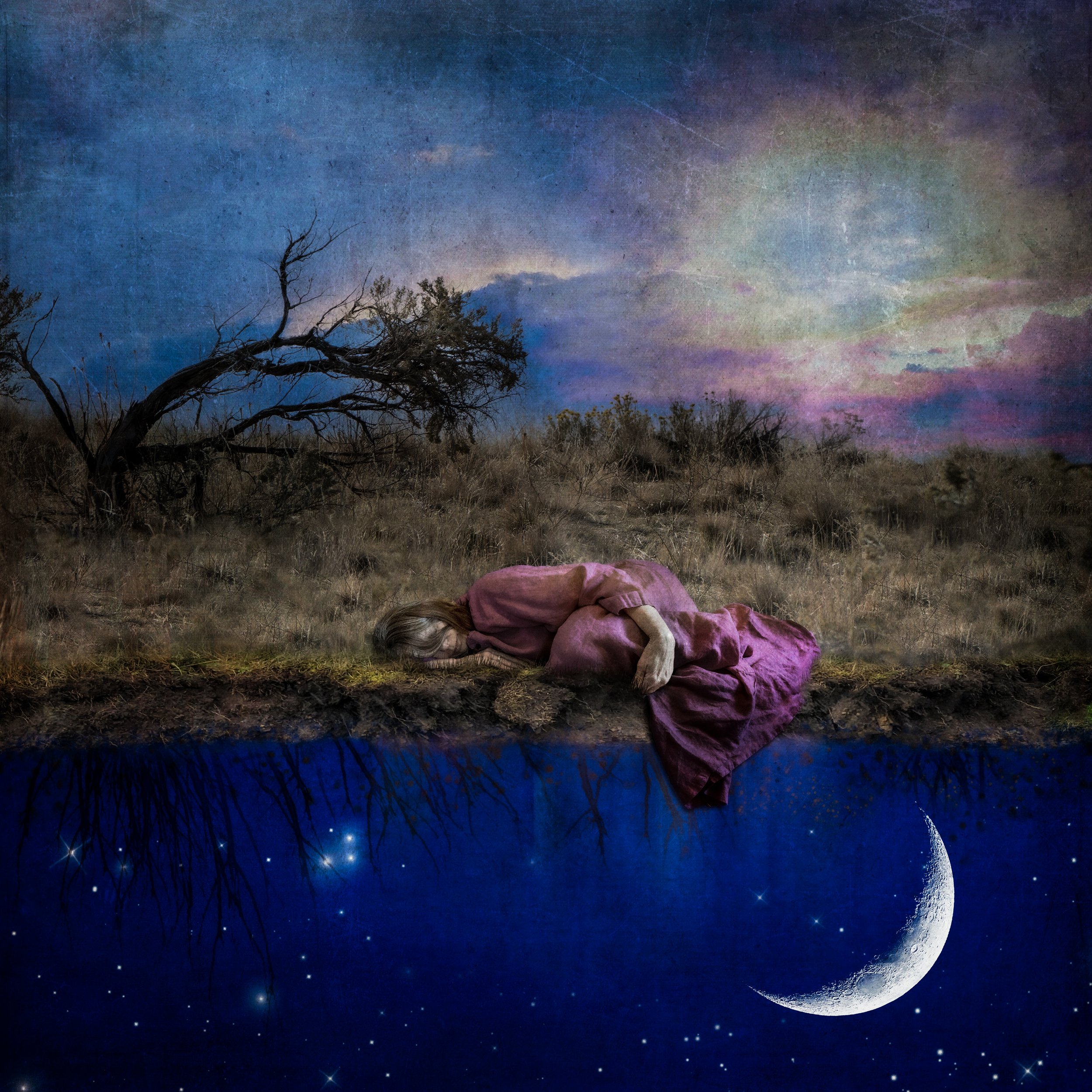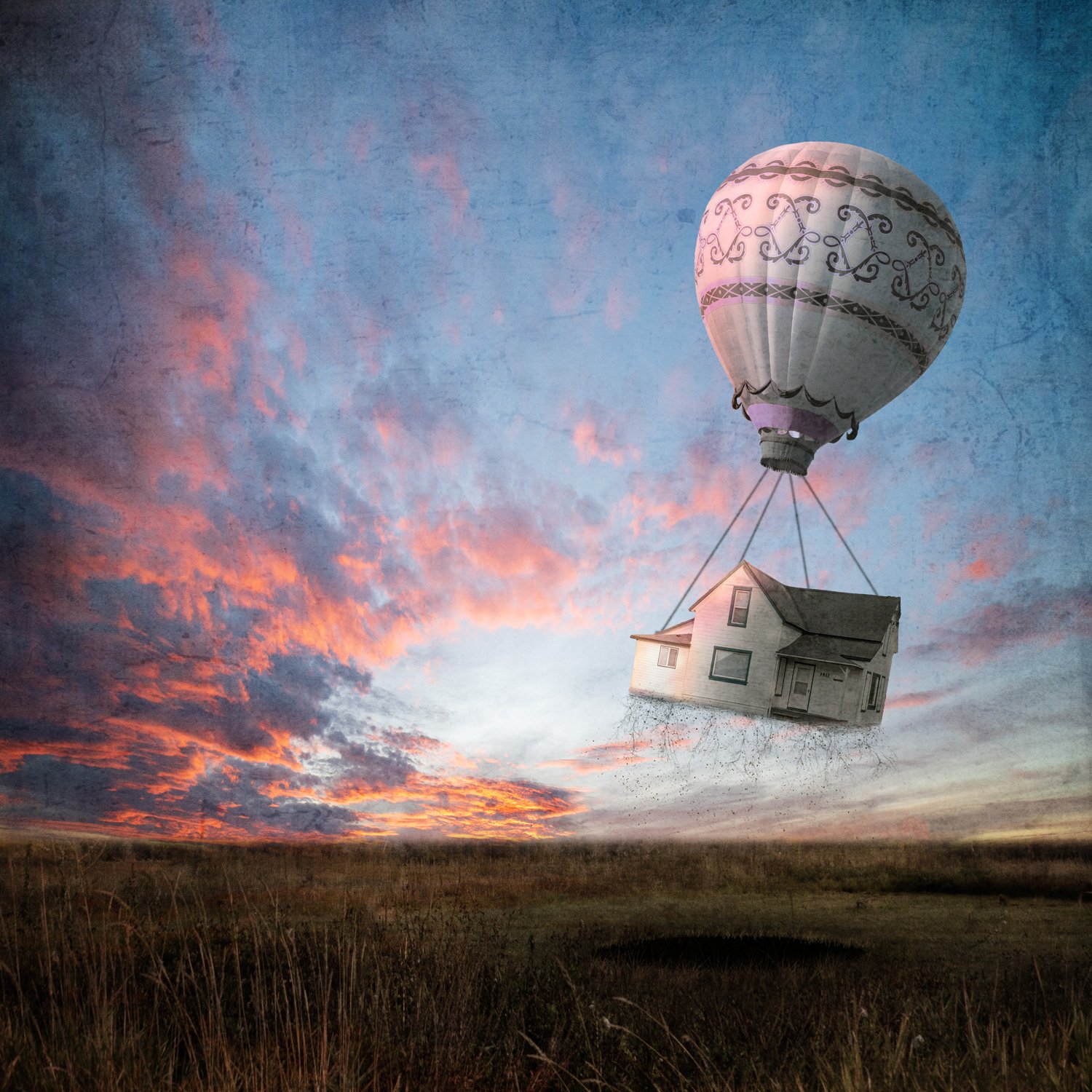Artist Maureen Denny
Congratulations to Maureen Denny for earning her place as Finalist in the Boynes Artist Award 8th Edition [Professional Artist Category]!
Who are you?
I never had the intention of becoming an artist. In my early years, my main focus was surviving and taking care of my child as a single mother. Art was a luxury that I couldn't afford. However, years later, I found myself living on an island in the Pacific Northwest, surrounded by natural beauty. During my walks with my dog, I started taking photos to share with friends and family. The feedback I received was overwhelmingly positive, and I began to notice more of my surroundings, such as the little details in flowers, the way the light hit the water, and the clouds above me.
After a few years, we left the island and moved inland. Unfortunately, I felt miserable in our new city. In an attempt to give myself something to look forward to, I decided to delve deeper into photography. I purchased a higher-quality camera and took a few lessons from a local photographer. I started by taking landscape and wildlife photos but soon realized I wanted to do more with my images. By combining my technical skills with photography, I found that composites were a great next step.
“Parade #9”
Composite Photography, using some elements from the Biodiversity Heritage Library
By Maureen Denny
What inspired you to utilize photography as a medium?
Photography allows me to freeze a moment in time and capture the essence of a particular moment. When I have my camera in hand, I become fully immersed in my surroundings, seeking out the unusual details that often go unnoticed by others. I often utilize the camera on my smartphone to capture smaller elements that I can incorporate into my work. With the remarkable cameras available on newer phones, I am able to achieve impressive results. As the talented photographer Chase Jarvis famously stated, "the best camera is the one that's with you."
“Sasquatch In The Woods”
Composite Photography
By Maureen Denny
How would you describe your work?
My art is diverse and includes self-portraits and surrealism. I am constantly seeking ways to push my creativity to new heights and avoid becoming stagnant by only producing one type of work. In my opinion, this would limit my artistic vision. For me, art is a journey of continuous growth, and I am always eager to experiment and explore new techniques to see where they can take me.
“Stay or Go”, Self-Portrait
Composite Photography
By Maureen Denny
Can you discuss the inspiration and thought process behind your finalist work?
As I lay in bed one morning, still in a dreamlike state, I found myself pondering the boundary between the dream world and reality. It is during these moments of semi-consciousness that ideas can flow freely, unencumbered by the usual constraints of our waking minds. Through my latest artwork, I sought to capture the merging of these two states of mind, representing that fleeting moment when the line between them is blurred and uncertain.
“Dreams Of Nature”, Self Portrait
Composite Photography
By Maureen Denny
Can you walk us through the technical steps of creating “dreams of nature”?
To create this piece, I began by taking a self-portrait of myself lying on my side, curled up with my face obscured. By hiding my features, I aimed to make it easier for viewers to see themselves in the work. As the scene I was compositing myself into was entirely fictitious, I utilized a solid background that contrasted with the image to aid in separating it from the background.
Next, I sifted through my personal collection of nature photographs to select and combine various shots and elements that complimented my vision for the piece. Multiple iterations of the background were tested to capture the sensation of being suspended between two worlds - that of reality and the dream world.
Once I had assembled the various elements, I began to work on color, altering the peach hue of the gown to better align with the mood I was seeking to convey. After making adjustments, I set the artwork aside for a week before returning to scrutinize it once more. I made additional modifications before finally adding a textured effect to finish the piece.
“Sunset Drive”
Composite Photography
By Maureen Denny
What do you hope to communicate to an audience with your work?
My primary objective is to encourage people to perceive things from a different perspective. I tend to view things as either black or white, and creating these artworks helps me comprehend myself better. Surrealism presents a fascinating approach to conveying ideas that empower the audience to arrive at their own interpretations.
“Parade 4”
Composite Photography, using some elements from the Biodiversity Heritage Library
By Maureen Denny
Can you talk about your biggest learning experience during the process of creating your work?
I am currently learning the importance of simplicity in my artwork. I have recognized that I have a tendency to overthink and incorporate too many elements into my pieces. This often leads to hours or even days of work, only to realize that the piece isn't coming together as I had hoped. As a result, I end up deleting most of the elements and starting again from scratch. I now see the value in working minimally and trusting that less can be more.
“Holding Flowers”
Composite Photography using some A.I. elements along with photos of a wooden mannequin
By Maureen Denny
Can you discuss your biggest success since starting your artistic journey?
It may sound strange, but my biggest success came when I finally acknowledged myself as an artist. Previously, I would describe my composite photography as a mere hobby, downplaying my abilities and talents. This self-doubt held me back from opportunities, and I realized I needed to stop waiting for someone else to label me as an artist. The moment I felt confident enough to refer to myself as one, I opened myself up to new possibilities and experiences.
“Isolation”
Composite Photography
By Maureen Denny
Can you give us a piece of advice you wish you had known at the start of your career?
Persist in doing what fulfills your soul and keep showing up, even if not everyone appreciates your work. Trying to conform to fads or strict guidelines can stifle your creativity and passion. It's important to have confidence in yourself and your artistic vision. Don't waste energy trying to please everyone, as that is an unattainable goal. Instead, continue to create, improve, and share your work with the world.
“Unfinished Home”
Composite Photography
By Maureen Denny
What projects are you working on currently?
Lately, I have been experimenting with a few new methods. I haven’t quite worked out. I wished I was further into the process so I had something to share!
“Mobile Home”
Composite Photography
By Maureen Denny
What is your dream project or piece you hope to accomplish?
Currently, I do not have a specific project that I consider my dream project. Over the past year, I have been exploring various ideas and techniques, including experimenting with the incorporation of artificial intelligence into my work. Another area that I have been exploring is selling my work as NFTs. Through this experience, I have gained valuable insights into this new approach, and I strongly believe that there is potential for more fine art to be sold through this method. However, there are still many challenges that need to be addressed, and I am actively looking for ways to bridge the NFT market with the more traditional art spaces. Despite the hurdles, I am excited about the future of this innovative way of collecting art.
“Pondering”
Composite Photography using some A.I. elements along with photos of a wooden mannequin
By Maureen Denny
As a finalist, do you have any advice for artists who want to submit to awards, competitions, residencies, etc.?
When considering submitting your work to competitions, galleries, or awards, it's important to do your research beforehand. Take the time to learn about the judges and the venue to ensure your work is a good fit. For example, submitting surrealistic pieces to a gallery that primarily exhibits landscapes is unlikely to be successful. Ensure you have your artist statements and bio prepared and updated regularly, as your style and focus may change over time. Staying organized and prepared allows you to take advantage of opportunities as they arise. Consistency in your message can help establish you and your work, even if you're not the most organized person. Having some basic information at the ready can be incredibly helpful in the long run.
“Snail on a Shell”
Composite Photography
By Maureen Denny
Lastly, I like to ask everyone what advice they would give to their fellow artists, what is your advice?
Creating art is a highly personal endeavor, and there's no single approach that will work for everyone. While it's important to draw inspiration from other artists, it's equally important to stay true to yourself and your own unique creative vision. Don't try to mimic other artists, instead embrace your own individual style, message, and creative processes. At times, you may feel stuck or stagnant, but these moments often indicate a phase of gathering or growth. It's important to allow yourself the time and space to recharge and regenerate, as this is key to ongoing artistic development.
To view more of Maureen Denny’s work











